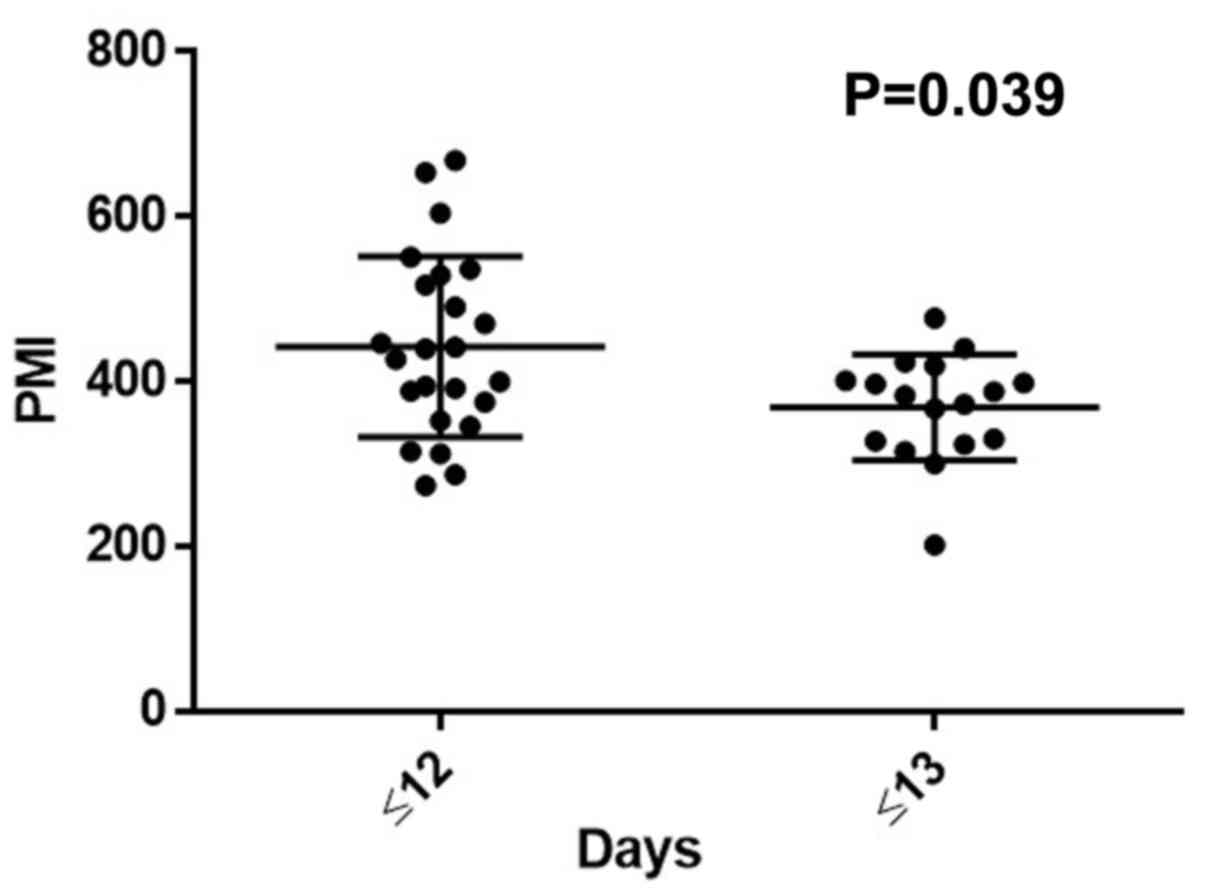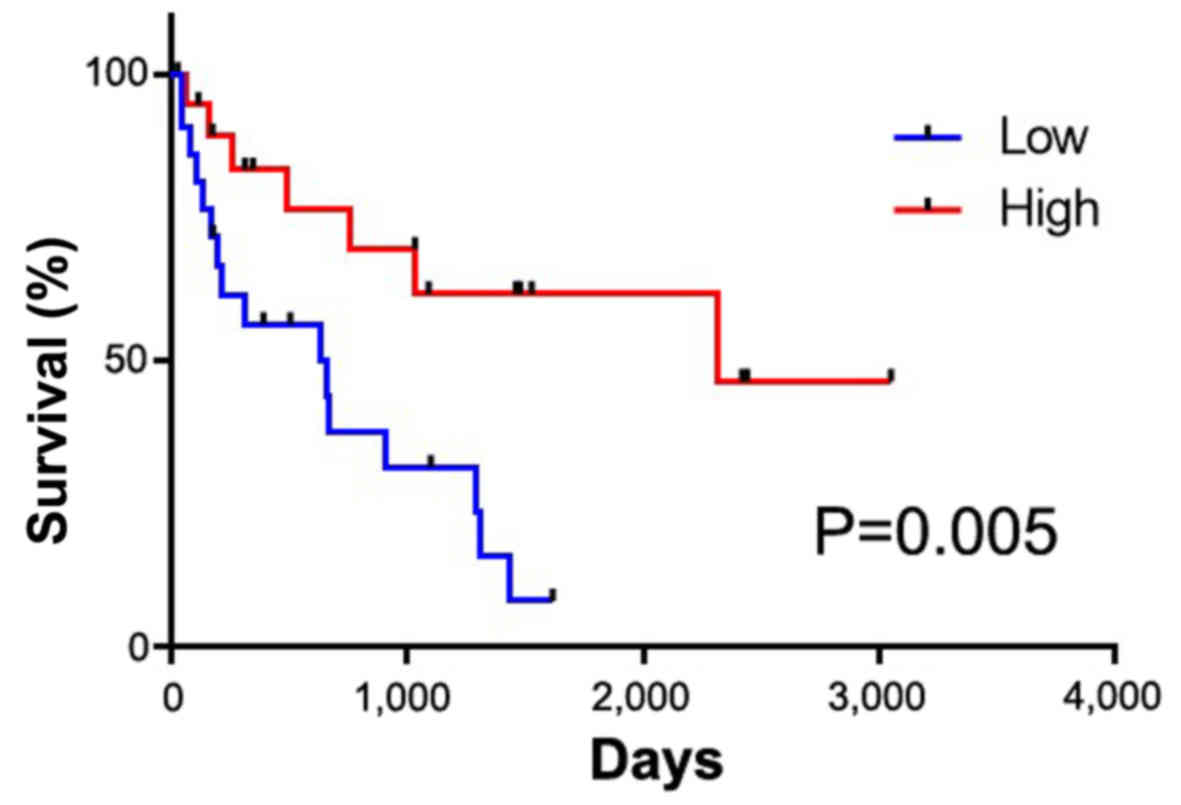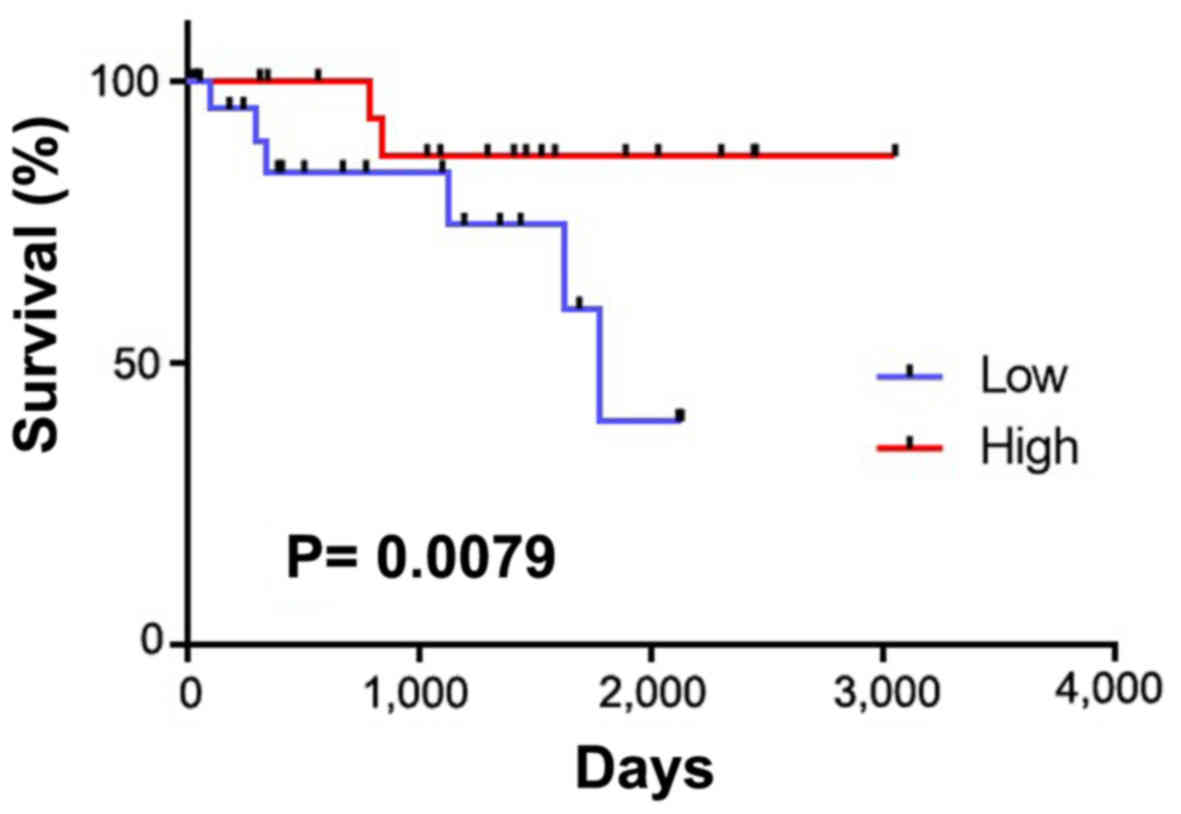|
1
|
Cruz-Jentoft AJ, Baeyens JP, Bauer JM,
Boirie Y, Cederholm T, Landi F, Martin FC, Michel JP, Rolland Y,
Schneider SM, et al: European Working Group on Sarcopenia in Older
People: Sarcopenia: European consensus on definition and diagnosis:
Report of the European Working Group on Sarcopenia in older people.
Age Ageing. 39:412–423. 2010. View Article : Google Scholar : PubMed/NCBI
|
|
2
|
Rosenberg IH: Sarcopenia: Origins and
clinical relevance. J Nutr. 127 Suppl 5:990S–991S. 1997.PubMed/NCBI
|
|
3
|
Raman JD, Messer J, Sielatycki JA and
Hollenbeak CS: Incidence and survival of patients with carcinoma of
the ureter and renal pelvis in the USA, 1973–2005. BJU Int.
107:1059–1064. 2011. View Article : Google Scholar : PubMed/NCBI
|
|
4
|
Rouprêt M, Zigeuner R, Palou J, Boehle A,
Kaasinen E, Sylvester R, Babjuk M and Oosterlinck W: European
Association of Urology Guideline Group for urothelial cell
carcinoma of the upper urinary tract: European guidelines for the
diagnosis and management of upper urinary tract urothelial cell
carcinomas: 2011 update. European Association of Urology Guideline
Group for urothelial cell carcinoma of the upper urinary tract.
Actas Urol Esp. 36:2–14. 2012.(In Spanish). View Article : Google Scholar : PubMed/NCBI
|
|
5
|
Oya M and Kikuchi E: Committee for
establishment of clinical practice guideline for management of
upper tract urothelial carcinoma; japanese urological association:
Evidenced-based clinical practice guideline for upper tract
urothelial carcinoma (summary-Japanese Urological Association, 2014
edition). Int J Urol. 22:3–13. 2015. View Article : Google Scholar : PubMed/NCBI
|
|
6
|
Hara T, Fujimoto H, Sakura M, Inokuchi J,
Nishiyama H, Miyazaki J, Ohyama C, Koie T, Kikuchi E and Hinotsu S;
Cancer Registration Committee of the Japanese Urological
Association, : Prognostic factors of recurrent disease in upper
urinary tract urothelial cancer after radical nephroureterectomy:
Subanalysis of the multi-institutional national database of the
Japanese Urological Association. Int J Urol. 22:1013–1020. 2015.
View Article : Google Scholar : PubMed/NCBI
|
|
7
|
Shiozu H, Higashijima M and Koga T:
Association of sarcopenia with swallowing problems, related to
nutrition and activities of daily living of elderly individuals. J
Phys Ther Sci. 27:393–396. 2015. View Article : Google Scholar : PubMed/NCBI
|
|
8
|
Tanimoto Y, Watanabe M, Sun W, Tanimoto K,
Shishikura K, Sugiura Y, Kusabiraki T and Kono K: Association of
sarcopenia with functional decline in community-dwelling elderly
subjects in Japan. Geriatr Gerontol Int. 13:958–963. 2013.
View Article : Google Scholar : PubMed/NCBI
|
|
9
|
Kasahara R, Kawahara T, Ohtake S, Saitoh
Y, Tsutsumi S, Teranishi JI, Miyoshi Y, Nakaigawa N, Yao M,
Kobayashi K and Uemura H: A Low psoas muscle index before treatment
can predict a poorer prognosis in advanced bladder cancer patients
who receive gemcitabine and nedaplatin therapy. Biomed Res Int.
2017:79815492017. View Article : Google Scholar : PubMed/NCBI
|
|
10
|
Saitoh-Maeda Y, Kawahara T, Miyoshi Y,
Tsutsumi S, Takamoto D, Shimokihara K, Hayashi Y, Mochizuki T,
Ohtaka M, Nakamura M, et al: A low psoas muscle volume correlates
with a longer hospitalization after radical cystectomy. BMC Urol.
17:872017. View Article : Google Scholar : PubMed/NCBI
|
|
11
|
Zhuang CL, Huang DD, Pang WY, Zhou CJ,
Wang SL, Lou N, Ma LL, Yu Z and Shen X: Sarcopenia is an
independent predictor of severe postoperative complications and
long-term survival after radical gastrectomy for gastric cancer:
Analysis from a large-scale cohort. Medicine (Baltimore).
95:e31642016. View Article : Google Scholar : PubMed/NCBI
|
|
12
|
Onesti JK, Wright GP, Kenning SE, Tierney
MT, Davis AT, Doherty MG and Chung MH: Sarcopenia and survival in
patients undergoing pancreatic resection. Pancreatology.
16:284–289. 2016. View Article : Google Scholar : PubMed/NCBI
|
|
13
|
Makary MA, Segev DL, Pronovost PJ, Syin D,
Bandeen-Roche K, Patel P, Takenaga R, Devgan L, Holzmueller CG,
Tian J and Fried LP: Frailty as a predictor of surgical outcomes in
older patients. J Am Coll Surg. 210:901–908. 2010. View Article : Google Scholar : PubMed/NCBI
|
|
14
|
Bastiampillai R, Lavallée LT, Cnossen S,
Witiuk K, Mallick R, Fergusson D, Schramm D, Morash C, Cagiannos I
and Breau RH: Laparoscopic nephroureterectomy is associated with
higher risk of adverse events compared to laparoscopic radical
nephrectomy. Can Urol Assoc J. 10:126–131. 2016. View Article : Google Scholar : PubMed/NCBI
|
|
15
|
Jeldres C, Sun M, Isbarn H, Lughezzani G,
Budäus L, Alasker A, Shariat SF, Lattouf JB, Widmer H, Pharand D,
et al: A population-based assessment of perioperative mortality
after nephroureterectomy for upper-tract urothelial carcinoma.
Urology. 75:315–320. 2010. View Article : Google Scholar : PubMed/NCBI
|

















